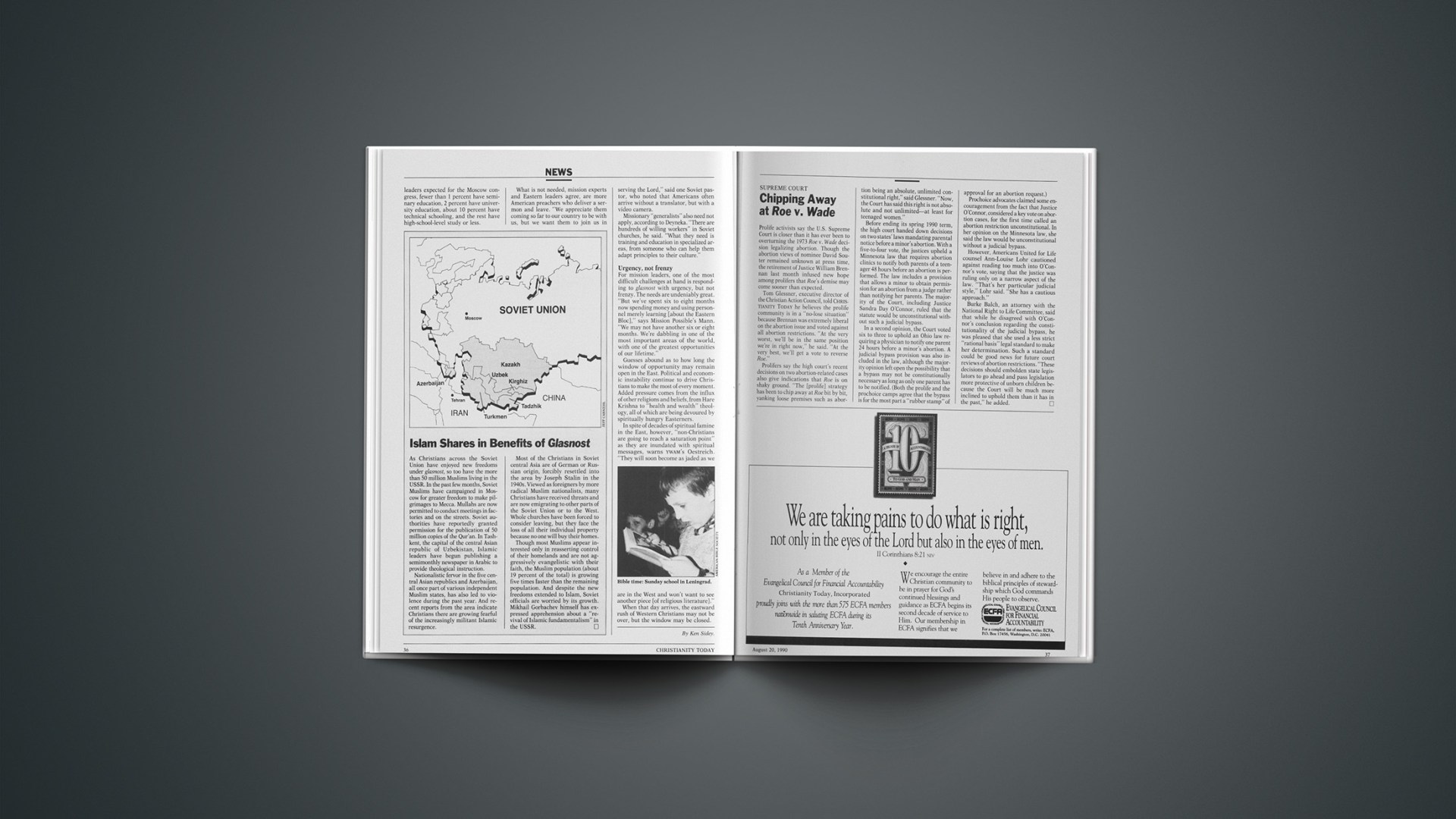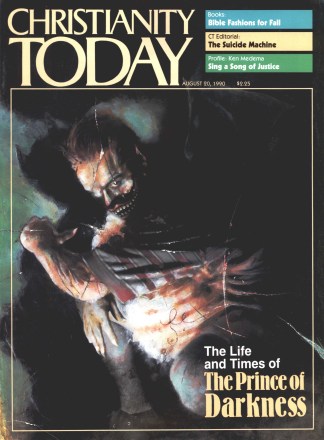Prolife activists say the U.S. Supreme Court is closer than it has ever been to overturning the 1973 Roe v. Wade decision legalizing abortion. Though the abortion views of nominee David Souter remained unknown at press time, the retirement of Justice William Brennan last month infused new hope among prolifers that Roe’s demise may come sooner than expected.
Tom Glessner, executive director of the Christian Action Council, told CHRISTIANITY TODAY he believes the prolife community is in a “no-lose situation” because Brennan was extremely liberal on the abortion issue and voted against all abortion restrictions. “At the very worst, we’ll be in the same position we’re in right now,” he said. “At the very best, we’ll get a vote to reverse Roe.”
Prolifers say the high court’s recent decisions on two abortion-related cases also give indications that Roe is on shaky ground. “The [prolife] strategy has been to chip away at Roe bit by bit, yanking loose premises such as abortion being an absolute, unlimited constitutional right,” said Glessner. “Now, the Court has said this right is not absolute and not unlimited—at least for teenaged women.”
Before ending its spring 1990 term, the high court handed down decisions on two states’ laws mandating parental notice before a minor’s abortion. With a five-to-four vote, the justices upheld a Minnesota law that requires abortion clinics to notify both parents of a teenager 48 hours before an abortion is performed. The law includes a provision that allows a minor to obtain permission for an abortion from a judge rather than notifying her parents. The majority of the Court, including Justice Sandra Day O’Connor, ruled that the statute would be unconstitutional without such a judicial bypass.
In a second opinion, the Court voted six to three to uphold an Ohio law requiring a physician to notify one parent 24 hours before a minor’s abortion. A judicial bypass provision was also included in the law, although the majority opinion left open the possibility that a bypass may not be constitutionally necessary as long as only one parent has to be notified. (Both the prolife and the prochoice camps agree that the bypass is for the most part a “rubber stamp” of approval for an abortion request.)
Prochoice advocates claimed some encouragement from the fact that Justice O’Connor, considered a key vote on abortion cases, for the first time called an abortion restriction unconstitutional. In her opinion on the Minnesota law, she said the law would be unconstitutional without a judicial bypass.
However, Americans United for Life counsel Ann-Louise Lohr cautioned against reading too much into O’Connor’s vote, saying that the justice was ruling only on a narrow aspect of the law. “That’s her particular judicial style,” Lohr said. “She has a cautious approach.”
Burke Balch, an attorney with the National Right to Life Committee, said that while he disagreed with O’Connor’s conclusion regarding the constitutionality of the judicial bypass, he was pleased that she used a less strict “rational basis” legal standard to make her determination. Such a standard could be good news for future court reviews of abortion restrictions. “These decisions should embolden state legislators to go ahead and pass legislation more protective of unborn children because the Court will be much more inclined to uphold them than it has in the past,” he added.










